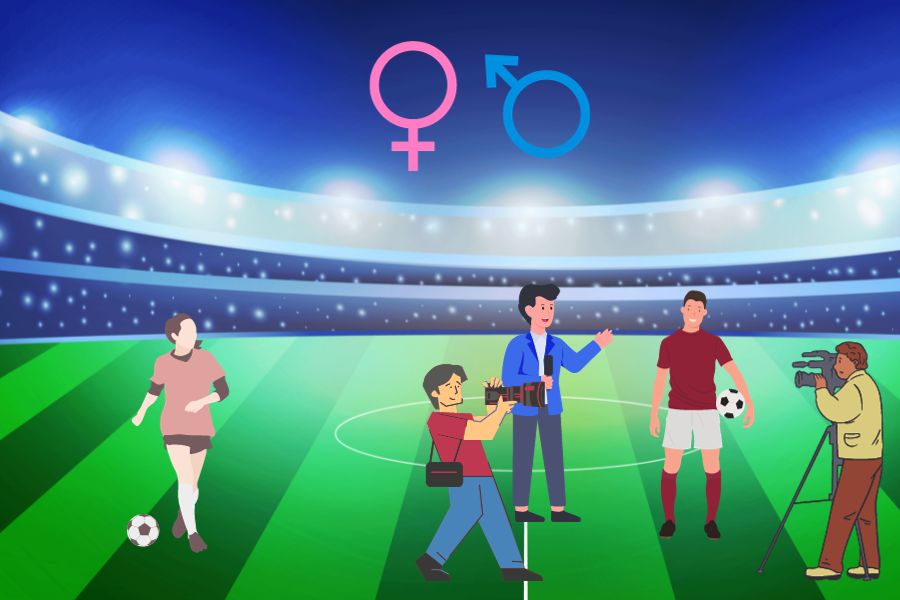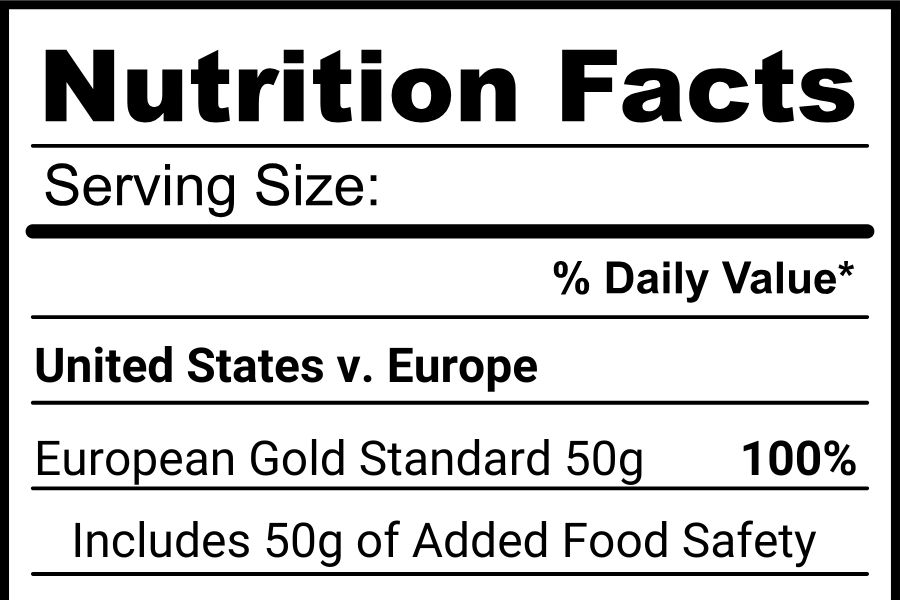In recent years, there has been growing recognition in the importance of women’s sports and how they are perceived. While notable progress has been made in promoting gender equality, women’s sports still face significant disparities and lack the attention they deserve. The negative public opinion surrounding female athleticism needs to come to an end. Society needs to demolish sexist stereotypes and let female athletes experience the equality and fairness that male athletes enjoy.
A large obstacle women face is the way the media portrays their sport. Part of this challenge is the amount of coverage they are receiving. Compared to men, women have a drastically smaller amount of media coverage. According to Dr. Cheryl Cooky, a professor of interdisciplinary studies at Purdue, in 2019, coverage of female athletes on news and highlight shows accounted for 5.4 percent of total sports coverage. Major sports networks often prioritize broadcasting men’s leagues and tournaments. The women’s events get demoted to secondary coverage or end up not being covered at all. Networks like ESPN and NBC should adjust their priorities to allow women to be reported just as much as men. Expanding coverage to include women’s sports provides viewers with a wider range of sporting content to enjoy. It allows the public to experience different styles of play and witness new rivalries. In addition, women athletes are consistently achieving in their respective sports and their performances deserve to be celebrated.
If female athletes miraculously have their sport covered, they will most likely face a wave of sexist backlash and could be deemed less skilled and less competitive. Even the most accomplished female athletes have been subjected to harsh criticism. Serena Williams, one of the most gifted tennis players of all time, has been judged for her physical looks, with some claiming she is too muscular to be appealing. This sexist narrative is particularly harmful to young women who wish to play professional sports, as it gives the wrong impression that talent and self-worth are tied to appearance.
Prejudice and discrimination have even led to extremes in the world of athletics. In the most recent FIFA Women’s World Cup, a line was unexpectedly crossed when Luis Rubiales, the president of the Spanish soccer federation, kissed star player Jenni Hermoso after winning the final. The moment left millions of viewers in complete awe as there was no way a prominent official would kiss a woman without consent on a global stage. This led to the ultimate question: did Rubiales misplace his lips in the euphoria of the moment, or did he inappropriately use his position of power? Let Rubiales’ resignation a few weeks after the scandal speak for itself. This tragic event opened the eyes of the public in regards to the inequalities female athletes experience.
Whether it’s on a basketball court or a soccer field, women are undoubtedly going to experience inequality, with pay being the most noticeable aspect. Unlike the United States women’s national team – which, through its fight for equality, was able to obtain an agreement guaranteeing equal pay for male and female players in the national team – many international federations choose to not offer fair pay to their female athletes. Hoping to fill the pay gap, FIFA announced a 300 percent increase in bonuses for the 2023 Women’s World Cup. While this was a major step forward, a significant gap still remains between the bonuses given to men and women in professional sports. One may argue that since men’s sports generate a greater revenue, their players deserve to be paid more. However, women put in the same amount of work, they train for hours a day, follow strict diets and sacrifice their personal lives to compete at the highest level. It is only fair to distribute equal pay for equal work.
Promoting equality in women’s sports is not just a matter of fairness, it is a crucial step towards building a more inclusive society. When equal opportunities, resources and recognition are provided, the barriers that have historically restricted women’s progress can be broken down. Thus, creating an even playing field where dedication and talent can truly thrive.









